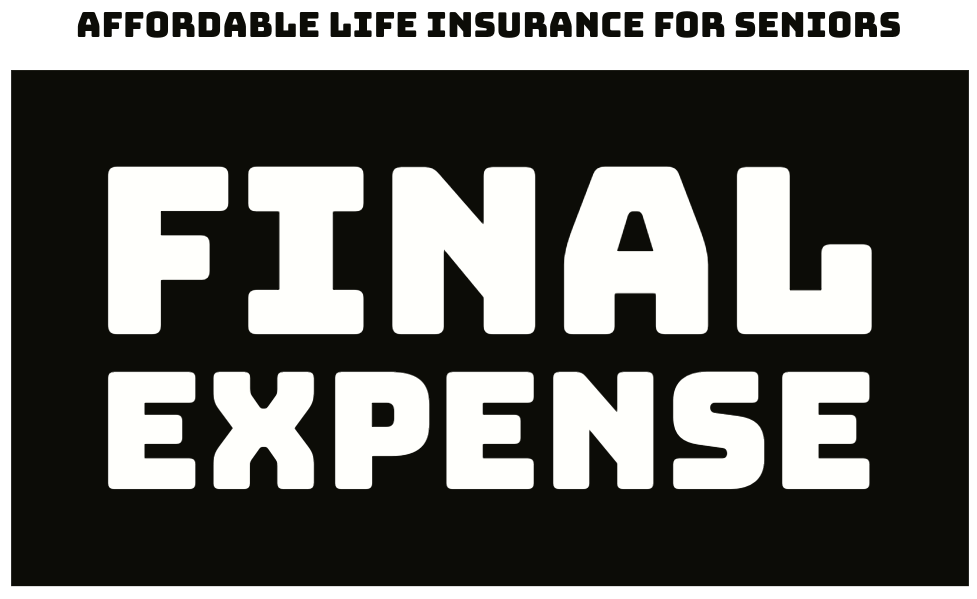Have you considered how final expense insurance fits into your end-of-life planning? This article explores the role of final expense insurance in ensuring financial peace of mind for you and your loved ones. We’ll cover what final expense insurance is, its importance in end-of-life planning, and how to choose the right policy. You’ll learn how this type of life insurance can help cover costs associated with funerals, medical bills, and other final expenses, potentially easing the financial burden on your family during a difficult time.
What Is Final Expense Insurance?

Final Expense insurance is a specialized life insurance policy designed to cover end-of-life costs. I’ll explain its basics, key features, and how it differs from traditional life insurance. This senior life insurance option provides financial security for families, ensuring that funeral expenses and other final costs are covered by the insurance company.
Understanding the Basics
Final expense insurance is a type of life insurance policy designed to provide financial protection for end-of-life costs. I’ve found that its accessibility makes it an attractive option for seniors, particularly those who may not qualify for traditional life insurance due to age or health conditions, including terminal illness.
Unlike a typical life insurance term policy, final expense insurance often has a smaller death benefit, usually ranging from $5,000 to $25,000. This focused coverage aims to alleviate the financial burden of funeral expenses, outstanding medical bills, and other end-of-life costs for the policyholder’s family.
One key advantage of final expense insurance is its simplified underwriting process. In my experience, many policies don’t require a medical exam, making it easier for individuals with health issues to obtain coverage. Additionally, these policies often offer flexible payment options, which can be crucial for seniors on fixed incomes or those with limited credit.
Key Features of Final Expense Policies
Final expense policies offer guaranteed acceptance, which I’ve found particularly beneficial for seniors with pre-existing conditions like cancer. This feature ensures that individuals can secure coverage for burial and other end-of-life expenses, regardless of their health status.
I’ve observed that many final expense policies include a cash value component, similar to universal life insurance. This allows policyholders to build savings over time, providing financial flexibility during retirement or for unexpected expenses.
Another key feature I appreciate is the policy’s stability. Unlike term life insurance, final expense policies typically offer level premiums and permanent coverage, ensuring consistent protection without the risk of losing coverage due to age or health changes. This stability provides peace of mind for seniors planning their final arrangements.
Differences Between Final Expense and Traditional Life Insurance
In my experience, final expense policies differ significantly from traditional life insurance in terms of coverage amount and purpose. While traditional policies often provide substantial death benefits to replace income or cover long-term financial needs, final expense insurance focuses on covering immediate end-of-life costs. As a consumer, I’ve found that final expense policies typically offer smaller benefit amounts, ranging from $5,000 to $25,000, which are tailored to cover funeral expenses and outstanding debts.
Another key distinction I’ve observed is the underwriting process. Traditional life insurance often requires extensive medical exams and health questionnaires. In contrast, many final expense policies, such as those offered by Mutual of Omaha, feature simplified underwriting or guaranteed issue options. This makes it easier for seniors or those with health conditions to obtain coverage without the need for a medical exam.
Lastly, I’ve noticed that final expense insurance often has more flexible payment options compared to traditional life insurance. This can be particularly beneficial for consumers on fixed incomes. Additionally, while traditional policies may have a cash value component, final expense policies typically offer immediate coverage without a waiting period, ensuring that beneficiaries receive the full benefit amount regardless of when the policyholder passes away.
- Final expense policies focus on covering immediate end-of-life costs
- Simplified underwriting or guaranteed issue options are common
- More flexible payment options and immediate coverage are available
Life’s uncertainty demands preparation. Understanding final expense insurance is just the first step in securing peace of mind for you and your loved ones.
The Importance of End-of-Life Planning

End-of-life planning is crucial for protecting loved ones from financial burdens and emotional stress. I’ll explore how final expense insurance addresses these concerns, ensuring customer satisfaction and peace of mind. We’ll also cover legal considerations, including documentation recommended by the National Association of Insurance Commissioners, and how hospice care factors into planning.
Financial Impacts on Loved Ones
I’ve observed that the financial impact of end-of-life expenses on loved ones can be significant in the United States. Final expense insurance policies offer a solution by covering costs such as cremation or burial, relieving families from unexpected financial burdens during an already difficult time.
In my experience, permanent life insurance, including final expense policies, provides long-term financial security. These insurance policies ensure that families aren’t left struggling to cover funeral expenses, which can easily amount to thousands of dollars.
I’ve found that final expense insurance is particularly valuable for those with limited savings. It offers peace of mind, knowing that loved ones won’t face financial hardship due to end-of-life costs. This type of planning is essential for responsible financial management and family care:
- Covers immediate funeral and burial expenses
- Prevents debt accumulation for surviving family members
- Allows for dignified final arrangements without financial stress
- Provides a financial safety net for unexpected end-of-life costs
Emotional Benefits of Planning Ahead
I’ve found that planning ahead for end-of-life expenses through final expense insurance provides significant emotional benefits. By securing life insurance coverage, I’ve seen families reduce their stress and anxiety about potential financial burdens. This proactive approach allows individuals to focus on quality time with loved ones, rather than worrying about the financial risks associated with end-of-life costs.
In my experience, having a final expense policy from a reputable provider like Corebridge Financial offers peace of mind. I’ve observed that policyholders feel more in control of their future, knowing they’ve taken steps to protect their families from unexpected financial strain. This sense of security is particularly valuable for those with disabilities or health concerns, as it ensures their end-of-life wishes can be fulfilled without burdening loved ones.
I’ve noticed that open discussions about end-of-life planning, facilitated by the process of obtaining final expense insurance, can strengthen family bonds. By addressing these sensitive topics in advance, I’ve seen families avoid potential conflicts and misunderstandings during emotionally charged times. This proactive approach to planning allows for more meaningful conversations about legacy and final wishes, fostering a sense of closure and emotional preparedness.
Legal Considerations and Documentation
I’ve found that proper legal documentation is crucial when obtaining final expense coverage. During the underwriting process, I ensure all necessary paperwork is completed accurately to avoid complications for beneficiaries. This includes naming beneficiaries clearly and updating policy information regularly to reflect life changes.
In my experience, having a comprehensive end-of-life plan extends beyond just securing a life insurance quote. I always recommend clients consider additional legal documents such as a will, living will, and power of attorney. These documents work alongside final expense insurance to provide a complete plan for end-of-life care and asset distribution.
I’ve observed that proper documentation can significantly ease the burden on family members during times of grief. By having clear instructions and financial provisions in place, loved ones can focus on the emotional aspects of loss rather than navigating complex legal and financial matters. This is particularly important when considering potential nursing care needs in later life:
- Establish a clear will and testament
- Designate power of attorney for healthcare decisions
- Create an advance directive for end-of-life care preferences
- Regularly review and update beneficiary information
End-of-life planning isn’t just smart. It’s a gift to your loved ones. Final Expense Insurance can make that gift easier to give.
How Final Expense Insurance Supports End-of-Life Planning

Final expense insurance plays a crucial role in end-of-life planning by covering funeral and burial costs, managing outstanding medical bills, and helping with debts and other final expenses. In California and other states, these policies often include a cash value component, providing financial flexibility. I’ll explore how this specialized insurance supports comprehensive planning, ensuring income protection and peace of mind for families.
Covering Funeral and Burial Costs
I’ve found that final expense insurance effectively covers funeral and burial costs, including embalming services. As a whole life insurance policy, it provides a guaranteed death benefit to cover these expenses, offering peace of mind to policyholders and their families.
In my experience, companies like Aflac offer final expense policies that don’t require a medical exam, making it easier for seniors to obtain coverage. The contract typically includes provisions for funeral expenses, ensuring that loved ones aren’t burdened with unexpected costs during a difficult time.
I’ve observed that final expense insurance can cover a range of burial-related costs, from caskets to cemetery plots. Here’s a breakdown of common expenses covered by these policies:
Managing Outstanding Medical Bills
I’ve found that final expense insurance can be a crucial tool in managing outstanding medical bills. When a loved one passes away due to a disease, the remaining medical fees can be substantial. This type of insurance provides an option to cover these costs, easing the financial burden on grieving families.
In my experience, many final expense policies offer flexibility in how the death benefit can be used. While primarily designed for funeral home expenses, I’ve seen families use a portion of the benefit to settle outstanding medical debts. This versatility in finance options can be a lifeline for those facing unexpected healthcare costs at the end of life.
I always advise clients to consider their potential medical expenses when choosing a final expense policy. By selecting an appropriate coverage amount, they can ensure that both funeral costs and outstanding medical bills are adequately addressed. This comprehensive approach to end-of-life planning provides peace of mind and financial protection for loved ones.
Helping With Debts and Other Final Expenses
I’ve found that final expense insurance policies often extend beyond covering funeral costs, providing valuable assistance with outstanding debts and other end-of-life expenses. These policies can help settle credit card balances, personal loans, or even cover the cost of a headstone, ensuring that loved ones aren’t burdened with financial obligations after a passing.
In my experience, many policyholders use final expense insurance as a complement to their existing health and pet insurance plans. This comprehensive approach to financial planning allows for a smoother transition during difficult times, addressing not only human-related expenses but also potential costs associated with pet care or outstanding medical bills.
I always advise clients to consider burial insurance as part of their overall end-of-life strategy. This specialized form of life insurance offers peace of mind, knowing that final expenses won’t deplete savings or leave family members in a difficult financial position. By addressing these often-overlooked costs, individuals can ensure a more comprehensive and considerate approach to their legacy planning.
End-of-life planning requires more than just thought. Final Expense Insurance offers tangible support, bringing peace of mind.
Benefits of Including Final Expense Insurance in Your Plan

I’ve found that including final expense insurance in end-of-life planning offers significant benefits. This specialized coverage provides ease of qualification without medical exams, making it accessible for seniors. With affordable premiums tailored to older adults and quick payouts to beneficiaries, it offers peace of mind for families. Unlike term life insurance, it covers specific end-of-life costs, including potential nursing home or accident expenses, ensuring comprehensive customer service throughout the process.
Ease of Qualification Without Medical Exams
I’ve found that final expense insurance offers a significant advantage in its ease of qualification without medical exams. This feature is particularly beneficial for seniors or those with pre-existing conditions like heart failure, who might struggle to obtain traditional life insurance. Many life insurance companies have simplified the application process for these policies, making it accessible to a broader range of individuals.
In my experience, the absence of medical exams in final expense insurance applications has been a relief for clients concerned about health-related disqualifications. This streamlined process allows beneficiaries to secure coverage quickly, ensuring that end-of-life expenses, including potential credit card debt, can be managed without delay. It’s important to note that while Medicare covers many healthcare costs, it doesn’t typically address funeral expenses, making final expense insurance a valuable complement.
I always advise clients that the no-exam feature of final expense insurance doesn’t mean less coverage. These policies still offer substantial benefits to help manage end-of-life costs. However, I remind them that premiums might be slightly higher compared to policies requiring medical exams, reflecting the increased risk assumed by the insurance provider. Despite this, the peace of mind and financial protection offered often outweigh the additional cost for many policyholders.
Affordable Premiums Tailored to Seniors
I’ve found that final expense insurance offers affordable premiums tailored specifically to seniors. Life insurance companies understand the financial constraints many older adults face and design these policies to fit within tight budgets. This approach to personal finance ensures that seniors can secure essential coverage without straining their retirement savings.
In my experience, the premiums for final expense policies remain stable throughout the life of the policy. This predictability allows seniors to plan their expenses more effectively, knowing that their insurance costs won’t unexpectedly increase. Some policies even offer the potential for dividends, providing additional value to policyholders over time.
I always advise seniors to compare final expense insurance options from different providers. By doing so, they can find the most cost-effective coverage that meets their needs. The affordability of these policies makes them an accessible and practical choice for seniors looking to protect their families from end-of-life expenses.
Quick Payouts to Beneficiaries
I’ve found that one of the most significant benefits of final expense insurance is the quick payout to beneficiaries. Unlike traditional life insurance policies, which may take weeks or months to process claims, final expense policies often provide funds within days of the policyholder’s passing. This rapid disbursement is crucial for families facing immediate funeral and burial expenses.
In my experience, the streamlined claims process for final expense insurance greatly reduces stress for grieving families. Most insurance providers offer simplified claim forms and dedicated support to expedite payouts. This efficiency ensures that beneficiaries can focus on honoring their loved one’s memory rather than worrying about financial logistics during a difficult time.
I always advise clients to inform their beneficiaries about the policy and its quick payout feature. By doing so, families can make timely arrangements without the need to dip into savings or resort to credit cards. This proactive approach aligns with the core purpose of final expense insurance: providing immediate financial relief when it’s needed most.
Peace of Mind for You and Your Family
I’ve found that final expense insurance provides unparalleled peace of mind for both policyholders and their families. By securing this coverage, I’ve seen clients feel a sense of relief knowing they won’t burden their loved ones with unexpected financial responsibilities during an already difficult time.
In my experience, this insurance acts as a safeguard against the rising costs of funerals and end-of-life expenses. I often advise clients that having this policy in place allows them to focus on spending quality time with family rather than worrying about financial planning for their final arrangements.
I’ve observed that final expense insurance fosters open conversations about end-of-life wishes within families. This proactive approach not only ensures that a person’s final wishes are respected but also alleviates potential conflicts among family members during an emotional period, ultimately strengthening family bonds.
The benefits of final expense insurance are clear. Now, let’s tackle the crucial task of selecting the right policy for you.
Choosing the Right Final Expense Insurance Policy

I’ll guide you through selecting the right final expense insurance policy. We’ll assess your coverage needs, compare providers, understand policy terms, and avoid common mistakes. This process ensures you find a policy that offers adequate protection and aligns with your financial situation, providing peace of mind for you and your loved ones.
Assessing Your Coverage Needs
I always start by evaluating my client’s specific financial situation when assessing coverage needs for final expense insurance. This includes considering their current savings, existing life insurance policies, and any outstanding debts that might impact their estate. By taking a comprehensive view of their financial landscape, I can help determine an appropriate coverage amount that will adequately address end-of-life expenses without overextending their budget.
In my experience, it’s crucial to factor in potential future costs when calculating coverage needs. I advise clients to consider inflation and the rising costs of funeral services and medical care. This forward-thinking approach ensures that the policy they choose today will still provide sufficient coverage years down the line, offering long-term peace of mind for both the policyholder and their beneficiaries.
I’ve found that discussing personal preferences for final arrangements is an essential part of assessing coverage needs. Some clients prefer simple cremation services, while others desire more elaborate funeral ceremonies. By understanding these wishes, I can guide them towards a policy that aligns with their vision for their final farewell, ensuring that their coverage will fully support their desired end-of-life plans.
Comparing Different Insurance Providers
I always recommend comparing multiple insurance providers when selecting a final expense policy. By researching different companies, I’ve found that clients can often secure better rates and more comprehensive coverage. I typically suggest evaluating at least three to five providers to get a good sense of the market offerings.
In my experience, it’s crucial to look beyond just the premium costs when comparing providers. I advise clients to consider factors such as the company’s financial stability, customer service reputation, and claim payout history. These elements can significantly impact the overall value and reliability of the policy.
I’ve learned that reading customer reviews and seeking recommendations from trusted sources can provide valuable insights when comparing insurance providers. This approach helps clients understand the real-world experiences of policyholders and can reveal potential issues or benefits that may not be immediately apparent from marketing materials alone.
Understanding Policy Terms and Conditions
I always emphasize the importance of thoroughly understanding policy terms and conditions when choosing a final expense insurance policy. In my experience, carefully reviewing the fine print helps clients avoid unexpected limitations or exclusions that could affect their coverage. I encourage policyholders to pay close attention to the waiting period, benefit amount, and premium payment terms.
I’ve found that many clients overlook the importance of understanding the policy’s cash value accumulation and loan provisions. These features can provide financial flexibility during the policyholder’s lifetime. I explain how the cash value grows over time and how it can be accessed if needed, ensuring clients make informed decisions about their coverage.
In my practice, I stress the significance of understanding the policy’s renewal terms and any potential changes in premiums or benefits over time. This knowledge allows clients to plan for long-term affordability and ensures the policy remains suitable for their needs as they age. I always recommend asking questions about unclear terms and seeking clarification from the insurance provider before committing to a policy:
- Review waiting period and coverage start date
- Understand premium payment terms and frequency
- Examine cash value accumulation and loan options
- Clarify renewal terms and potential premium changes
- Verify beneficiary designation process
Tips for Avoiding Common Mistakes
I always advise clients to avoid underestimating their coverage needs when selecting a final expense insurance policy. In my experience, many people focus solely on funeral costs, overlooking potential medical bills or outstanding debts. I recommend considering all possible end-of-life expenses to ensure adequate coverage.
I’ve found that a common mistake is not fully understanding the policy’s waiting period. I emphasize the importance of carefully reviewing this aspect, as some policies may not provide full benefits immediately. I guide clients to choose a policy that aligns with their current health status and life expectancy to avoid potential gaps in coverage.
I strongly caution against withholding health information during the application process. In my practice, I’ve seen claims denied due to non-disclosure. I always encourage honest and thorough responses to health questions, ensuring the policy remains valid and provides the intended protection when it’s needed most.
Choosing the right policy is just the beginning. Now, let’s explore how to make it work for you.
Steps to Integrate Final Expense Insurance Into Your Planning

I’ll guide you through integrating final expense insurance into your end-of-life plan. We’ll start by evaluating your current financial situation, then consult with an insurance professional to find the right policy. I’ll explain how to communicate your decisions with family members and stress the importance of regularly reviewing and updating your plan to ensure it stays aligned with your needs.
Evaluating Your Current Financial Situation
I always start by thoroughly assessing my current financial situation when integrating final expense insurance into my end-of-life plan. This involves reviewing my existing assets, debts, and any life insurance policies I may already have. By understanding my financial landscape, I can determine how much additional coverage I need to ensure my final expenses are fully covered.
In my experience, creating a detailed budget of potential end-of-life costs is crucial. I include estimates for funeral services, burial or cremation expenses, and any outstanding medical bills or debts. This comprehensive approach helps me identify any gaps in my current financial preparations and guides me in selecting an appropriate final expense insurance policy.
I’ve found that considering my long-term financial goals and retirement plans is essential when evaluating my need for final expense insurance. By factoring in my expected income, savings, and potential future expenses, I can make an informed decision about how much I can comfortably allocate towards premiums while still maintaining financial stability throughout my retirement years.
Consulting With an Insurance Professional
I always recommend consulting with an insurance professional when integrating final expense insurance into my end-of-life plan. Their expertise helps me navigate the complex landscape of policy options and ensures I select coverage that aligns with my specific needs and budget. In my experience, these professionals can offer valuable insights into the nuances of different policies that I might otherwise overlook.
During my consultations, I make sure to discuss my current financial situation, health status, and long-term goals with the insurance professional. This open dialogue allows them to provide tailored recommendations and helps me understand how final expense insurance fits into my overall financial strategy. I’ve found that their guidance is particularly useful in explaining the differences between various policy types and their associated benefits.
I always come prepared with questions about policy terms, premium payments, and potential exclusions when meeting with an insurance professional. This proactive approach ensures that I fully understand the coverage I’m considering and helps me make an informed decision. In my experience, a thorough consultation with an expert significantly reduces the risk of selecting an inadequate or unsuitable policy for my end-of-life planning needs.
Communicating Your Decisions With Family Members
I always prioritize open communication with my family members about my final expense insurance decisions. By sharing my plans, I ensure they understand my wishes and the financial provisions I’ve made. This transparency helps prevent confusion and potential conflicts during an already difficult time.
In my experience, explaining the benefits of final expense insurance to my loved ones fosters a sense of security and preparedness. I take the time to discuss how this coverage will alleviate financial burdens, allowing them to focus on grieving and honoring my memory without worrying about funeral costs or outstanding debts.
I find it helpful to involve my family in the decision-making process when possible. By seeking their input on funeral preferences or policy options, I create a collaborative approach to end-of-life planning. This involvement strengthens family bonds and ensures everyone feels heard and respected in the planning process.
Regularly Reviewing and Updating Your Plan
I make it a point to regularly review and update my final expense insurance plan. Life circumstances change, and I’ve found that reassessing my coverage needs annually ensures my policy remains adequate. This practice helps me avoid potential gaps in coverage as my financial situation or health status evolves.
In my experience, significant life events often trigger the need for plan updates. When I’ve faced changes like marriage, divorce, or the birth of grandchildren, I’ve revisited my policy to ensure it still aligns with my wishes. I also consider adjustments if I’ve paid off debts or acquired new assets, as these factors can influence the coverage amount I need.
I’ve learned that staying informed about industry trends and policy options is crucial for maintaining an effective final expense plan. I periodically consult with my insurance professional to discuss any new products or features that might better suit my needs. This proactive approach helps me leverage the latest offerings in the final expense insurance market, ensuring my plan remains optimized for my current situation.

